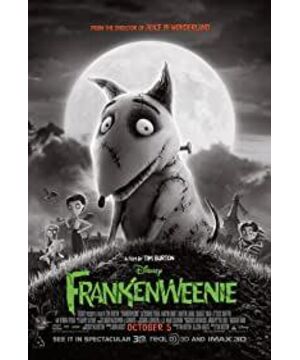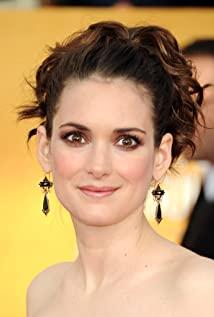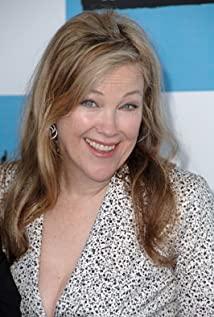This black-and-white Disney animation, even with these Tim-specific elements, still seems to be a child-oriented plot: a tight, novel and moderately exaggerated worldview, telling the story of a teenager and his friends. But even in a Disney setting, Tim doesn't seem to pass up an opportunity like this to instill some serious thought with the kids.
1. What is death:
Parents take their children to watch such a style of film, which is more or less risky. But perhaps the educational value of the film can reassure parents and even feel that they are worth the money.
Vincent's pain and reluctance in the face of Sparky's accidental death, and his unwillingness to accept the reality in the future, tried every means to bring Sparky back to life, but in the end, his attempt to reverse his life and death brought disaster to the town.
Looking back on this thought process, it seems that many people are confused and emotionally out of control caused by the vague concept of life and death in their youth. What exactly is "death"? This is a question that many children ask, "Can he come back when he is dead? Why not let him come back? How can I let him come back?" This kind of confusion for teenagers is so familiar. And Tim is presented one by one in the film.
A comforting remark from Vincent's mother actually aroused a strong curiosity in Vincent, trying to get Sparky back to his side, not just "in his heart". And when Sparky died for the second time, Vincent had already recognized the irreversibility of death, and even trying to cross this line might only lead to a more dire situation. So Sparky, who couldn't get back up after Vincent's shock, showed an unusual calm.
He learned to accept death, to admit it, and to know how to keep the dead in his heart. Perhaps the abrupt end of the movie will be more meaningful, but due to Disney's style, it has to be reunited in the end. But it is undeniable that the revealing of death in children's films is often left on the surface, and there is no such deep precedent.
2. The common sense world of adults:
Using children's films to satirize the adult world seems to be the norm for many cartoons. And the fantasy world constructed by Tim Burton often makes fun of the real world, constructing an extremely absurd but happy scene that makes moviegoers envious.
The father in the film is a typical philistine character, and the professional orientation of a travel agency salesman is a perfect match for his utilitarian and conservative rhetoric. In the common-sense world constructed by him, the mayor, and his fellow citizens, all inventions and whimsy seem dangerous and untouchable. Any character who opposes and goes against "common sense" is labelled weird.
In this world full of common sense and rituals, perhaps only these whimsical children will discover the secret of the resurrection lightning, while those adults who are busy with daily life just raise their heads and sigh and bury their heads forward.
Perhaps the boundary between life and death is sharp, but if the space for imagination is not preserved, then the world can only become more dull.
3. Justify the name of science:
Talking about "science" and "intention" in this impetuous society may be more absurd than many plots in the movie. This can't help but remind me of Cheng Yao, a recent hunger strike professor from Tsinghua University. He is somewhat similar to the science teacher in the film. He is upright and sticks to the bottom line of science. Deliberate academics do not allow falsification, unless you even want to deceive your own heart, and dedicated science has no boundaries, proving the hypocrisy of common sense in this world and the uncertainty of the formula.
What is science? It can be the feisty but vivid explanation of the primary and secondary students in the film, or the dark but vivid explanation of the science teacher. But for children, this should not be a mind-bending infighting, let alone a physical education teacher occupying the scientific forum (somewhat reminiscent of the frequent teacher turnover of Hogwarts Defense Against the Dark Arts).
Maybe the children watching the movie will not ponder the evaluation of science in it, but at least they know that what is done "with heart" is beautiful even if it is brought back to life. Things without the heart, even if there are many precedents, can create a tragedy.
And the adults watching the movie should be alert to how many things that should be holy have been made into a haze by us.
Perhaps this interpretation of a film full of romantic fantasies and childishness is a bit too serious. But the more so-called "weird" things may be more reasonable, because the society we live in is enough to make us exclaim and surprise.
View more about Frankenweenie reviews











